Ecosystems
-
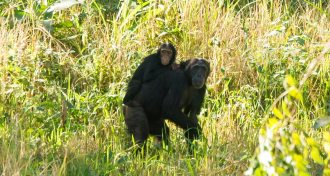 Animals
AnimalsChimps keep numbers high as forest losses mount
African apes show surprising resilience in face of forest destruction.
By Bruce Bower -
 Animals
AnimalsChimps keep numbers high as forest losses mount
African apes show surprising resilience in face of forest destruction.
By Bruce Bower -
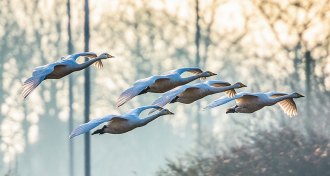 Animals
AnimalsA naturalist recounts birds’ lives in the Scottish Highlands
In Gods of the Morning, a naturalist chronicles how birds and other wildlife withstand the changing seasons in the Scottish Highlands
By Sid Perkins -
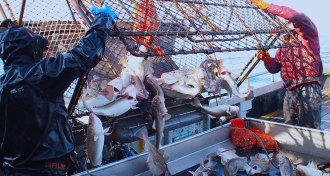 Animals
AnimalsSeeing humans as superpredators
People have become a unique predator, hunting mostly adults of other species.
By Susan Milius -
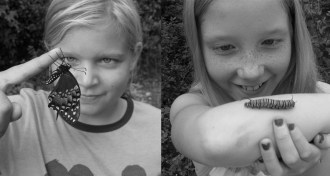 Chemistry
ChemistryThree kids’ science books offer fun, fascinating experiments
No matter what interests kids, there’s a do-it-yourself science book for them. Here are three with entertaining and educational options.
-
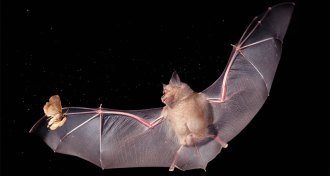 Animals
AnimalsLED lights make moths easy targets for bats
Bright LED lights may bewilder moths, making them vulnerable to predator attacks.
-
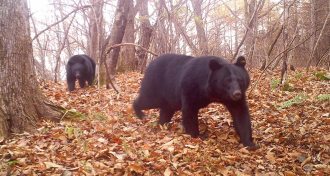 Animals
AnimalsHow bears engineer Japanese forests
In Japanese forests, black bears climb trees, breaking limbs. Those gaps in the forest provide light to fruiting plants, a new study finds.
-
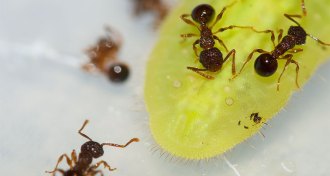 Animals
AnimalsCaterpillar treats and tricks ants by oozing spiked juice
Caterpillars ooze droplets that lure ants away from colony duties to instead lick and defend their drug source, new lab tests suggest.
By Susan Milius -
 Ecosystems
EcosystemsEncased algae create kaleidoscope of color
The skeletons of diatoms, algae that produce oxygen but also form toxic blooms, can create beautiful microscopic designs.
-
 Ecosystems
EcosystemsOcean food source lives by day, dies by night
The most abundant carbon fixer in the oceans lives by day, dies by night, and may be key to the balance of marine ecosystems.
-
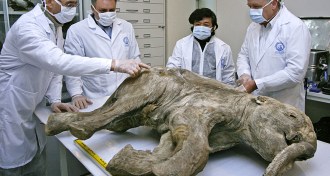 Genetics
GeneticsExtinct species may get a second chance
An evolutionary biologist explains the obstacles scientists must overcome to revive extinct species.
-
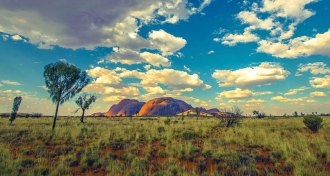 Climate
ClimateTranquil ecosystems may explain wild swings in carbon dioxide stashing
Semiarid ecosystems, such as grasslands and shrublands, are behind the large variation in the amount of atmospheric carbon dioxide sucked in by land each year.
By Beth Mole